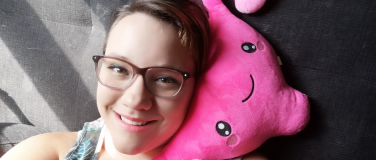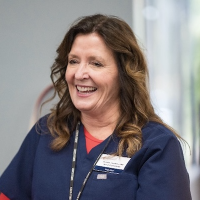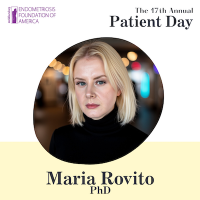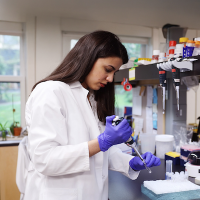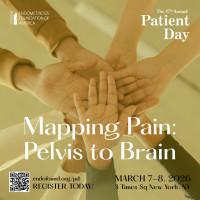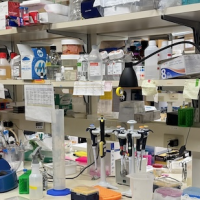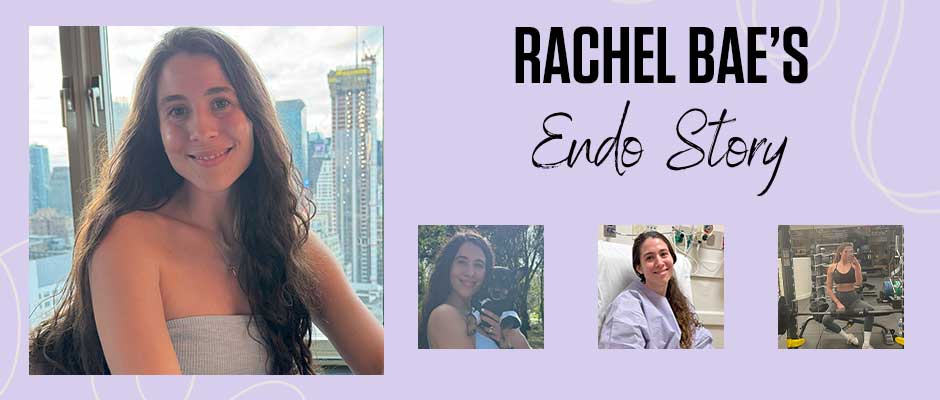
Rachel Bae’s menstrual cycle didn’t start until she was almost 17. Some of her periods in high school were heavy and painful, while others didn’t bother her. When they did hurt, she couldn’t do much about it.
“I grew up in a very religious household, and you didn’t go to the gynecologist until you were married. It also just wasn’t a thing to go to the doctor for period pain,” Bae said. “I remember sleepovers where I’d wake up so nauseous and sick that I could only crawl, and my dad would have to come pick me up.”
The 29-year-old New York City resident has a somewhat unusual endometriosis story. While she struggled with symptoms on and off late in high school, she wouldn’t experience anything significant again for nearly a decade.
“I left the U.S. after high school and went to Germany for five years, and I didn’t have too many issues with my periods there,” Bae said. “I’d have a bad one occasionally, but most of the time I was okay and didn’t notice any other symptoms.”
In 2023, living in the U.S. again, she suffered a back injury, the cause of which is unknown.
“I was traveling to Europe and got a stinging pain in one of my glutes, and then it went down my leg. I also had pain on the right side of my abdomen. After a few months, I was diagnosed with a herniated disc,” Bae said. “I went to physical therapy, and they expected my recovery to be quick since I was someone who was in the gym six days a week, but it took me over a year to recover.”
The recovery, though, was overshadowed by another issue.
“I started getting back pain again, but it was more of an aching all over this time, and I still had a deep pain in my right side,” Bae said. Her health continued to decline to the extent that her pain frequency increased, preventing her from going to the gym for weeks at a time. “The doctors thought I had weak hips from my back injury, so they had me do special exercises. When that didn’t work, they sent me to doctors to check my organs.”
When nothing developed from the organ check, Bae finally visited several gynecologists. One told her that she had cysts, but that they couldn’t be causing her that much pain. The other gynecologists were even less helpful.
“All the ones I saw didn’t seem to know what to do with me or have any understanding of what I was going through. None of them suggested endo or asked any questions about my periods,” Bae said. “I told one of them that I’d done everything, even had my organs checked, and they said, ‘Maybe you should have your organs checked.’ I said, ‘I just told you that everything’s been checked!’ I do believe now that the pain had to do with my endometriosis hiding under the back injury. By the back therapy working, it exposed the endo.”
Fortunately, Bae had been conducting extensive research and had become familiar with endometriosis. She had also been doing something that Dr. Tamer Seckin, the co-founder of EndoFound, suggests all patients with any health issues do—she tracked her symptoms every day.
“I’d been tracking them for a year during the back injury,” Bae said. “When my pain didn’t fully go away [after the physical therapy], I realized a lot of it was during ovulation, and then sometimes during my menstrual cycle. Some of my periods weren’t that bad, but other times I was shaking and sweating on the ground for a few hours.”
Bae asked to be referred to an endometriosis specialist. The gynecologist obliged.
“I saw two specialists, and they both could tell right away that something was wrong,” Bae said. “When the one I ended up going with was doing an internal exam, he said most women flinch in pain, which I didn’t. He only went forward with the surgery because I’d been tracking my symptoms for so long, and they pointed to it being endometriosis.”
Bae had excision surgery this past February. The surgeon removed endometriosis from her ovaries and uterus, along with from her hips and sciatic nerve, which explained most of her pain.
“I’m still recovering,” Bae said. “I’ve been doing pelvic floor therapy, a lot of yoga, exercises for my hips, and some upper body weightlifting, which also helps my mental health a lot.”
Bae said she began tracking her symptoms—which gave her the confidence to advocate for herself—out of desperation.
“I just couldn’t get better with my back and couldn’t figure out what was wrong or what I was doing to cause it, so I started tracking every single thing, all the way down to what I was eating—every little thing that it could possibly be.”
Along with tracking symptoms, Bae had a couple more bits of sage advice for those who think they may have endometriosis.
“See the right doctor from the start. Go straight to an excision specialist,” she said. “And always trust your gut. You know your body best. None of the doctors I went to before my surgery were able to help me figure this out. I truly had to trust myself.”
*Patient stories submitted to EndoFound.org are the patient's views, not necessarily those of the foundation. All testimonials are from real patients, may not reflect the typical patient’s experience, and are not intended to represent or guarantee that anyone will achieve the same or similar results.




